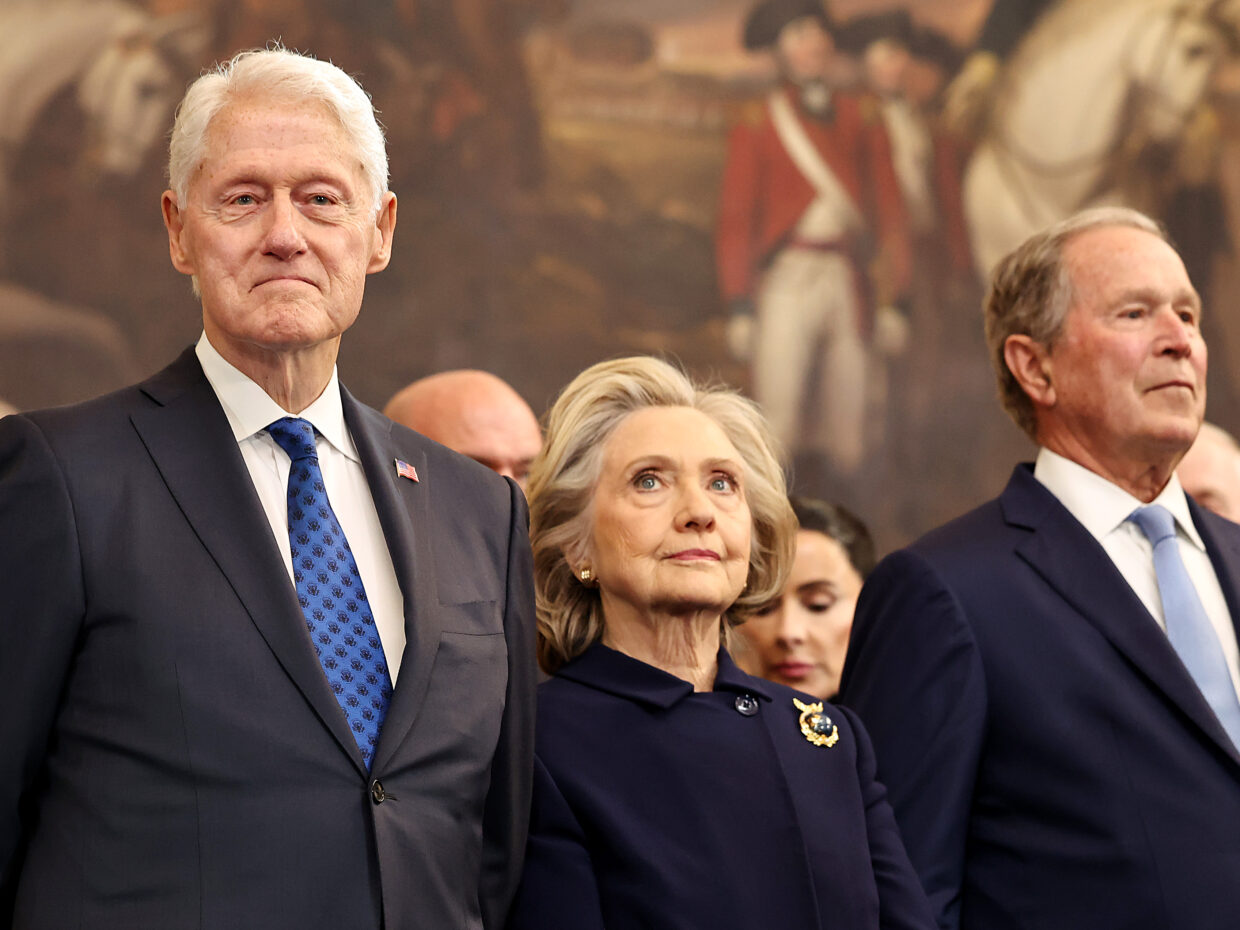Bill and Hillary Clinton were among nearly a dozen high-profile figures subpoenaed Tuesday (August 5) by House Republicans as part of an intensifying congressional investigation into the Justice Department’s handling of the late Jeffrey Epstein’s sex trafficking case.
The House Oversight Committee issued subpoenas to former president Bill Clinton, former Secretary of State Hillary Clinton, ex-FBI Directors James Comey and Robert Mueller and six former attorneys general. The committee is demanding testimony and documents related to the federal government’s prosecution of Epstein and his longtime associate Ghislaine Maxwell.
Oversight Chairman James Comer (R-Ky.) said the move came just days after Department of Justice officials questioned Maxwell, who’s currently serving a 20-year sentence at a federal prison in Texas for conspiring to sexually abuse minors.
“The facts and circumstances surrounding both Mr. Epstein and Ms. Maxwell’s cases have received immense public interest and scrutiny,” Comer wrote in the subpoena letters. “While the Department undertakes efforts to uncover and publicly disclose additional information related to Mr. Epstein and Ms. Maxwell’s cases, it is imperative that Congress conduct oversight of the federal government’s enforcement of sex trafficking laws generally and specifically its handling of the investigation and prosecution of Mr. Epstein and Ms. Maxwell.”
If Clinton complies, he would become only the fifth former U.S. president to testify before Congress. But legal experts are skeptical. Former federal prosecutor Neama Rahmani told the New York Post he would be “very surprised” if Clinton appeared at the scheduled October 14 hearing, adding that Clinton and the former attorneys general could invoke executive privilege to avoid testifying.
The renewed scrutiny follows a controversial two-page memo released by the DOJ and FBI on July 6, which concluded there was no “client list” tied to Epstein’s criminal enterprise. The memo stated a “systematic review” of evidence found “no credible evidence” that Epstein blackmailed powerful individuals or that any uncharged third parties could be investigated.
Still, the memo acknowledged that Epstein’s crimes affected “over one thousand victims.”
Epstein, 66, died by suicide in a Manhattan jail cell on August 10, 2019, according to multiple independent and federal investigations. His death, combined with his ties to celebrities, politicians and business leaders, has fueled years of public suspicion and conspiracy theories.
Attorney General Pam Bondi, appointed by Donald Trump, previously said in February that a client list was “sitting” on her desk and that the FBI’s New York office held “thousands of pages of documents related to the investigation and indictment of Epstein.”
On July 17, Trump posted on Truth Social: “Based on the ridiculous amount of publicity given to Jeffrey Epstein, I have asked Attorney General Pam Bondi to produce any and all pertinent Grand Jury testimony, subject to Court approval.” He added, “This SCAM, perpetuated by the Democrats, should end, right now!”
Public dissatisfaction with the DOJ’s handling of the Epstein case remains high. A Quinnipiac University poll in July found that more than 60% of voters disapproved of the administration’s management of the so-called “Epstein files,” while only 17 percent approved.
